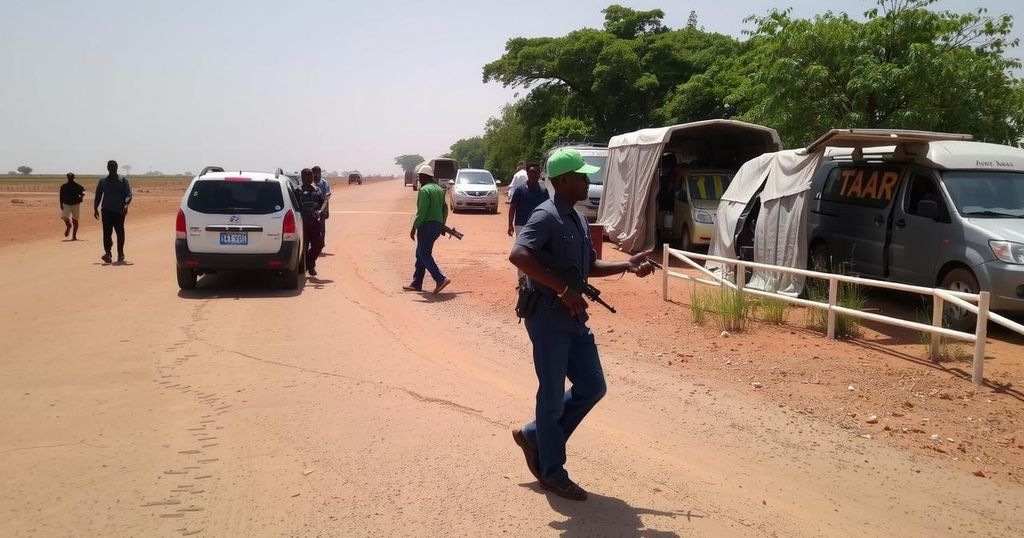South Sudan’s government has removed checkpoints along major highways, including the Juba-Bor route, resulting in mixed reactions from citizens. While some express relief over reduced travel times, others fear potential increases in armed robberies. The SSPDF reassures the public of continued monitoring and patrols to ensure safety despite the checkpoint removals. The situation highlights the delicate balance between facilitating transit and ensuring security in the region.
The South Sudanese government’s recent decision to eliminate checkpoints along key highways, particularly the Juba-Bor route, has elicited a variety of responses among civilians, travelers, and security specialists. While there is optimism among some residents in Bor and frequent users of the Juba-Bor Road regarding reduced travel delays, others are apprehensive about increased risks of attacks from armed groups due to the absence of security posts.
The South Sudan People’s Defense Forces (SSPDF) affirmed that the removal of illegal checkpoints was executed following a directive from President Salva Kiir, aimed at dismantling such roadblocks throughout the nation. Residents like Chol Chopa have welcomed this initiative for alleviating travel disruptions, yet they caution that it may create opportunities for armed bandits, potentially enhancing risks for travelers: “There were many roadblocks and frequent stoppages on the Juba-Bor route, but now they are gone. The absence could be dangerous as bandits could take advantage of the situation.”
Conversely, some locals perceive the removal of checkpoints in a more favorable light, arguing that it could lead to improved traffic conditions, the eradication of unofficial tax collection, and a positive impact on local economic activities. Victoria Yom Geu articulated this viewpoint, insisting that such changes promote trade efficiency: “We see it as reducing insecurity and making trade more efficient.”
Mach Anyang, who frequently travels this route, also expressed support for the government’s measure, noting that it is likely to alleviate previous frustrations faced by drivers who experienced monetary extortion at the hands of soldiers stationed at checkpoints.
Despite these mixed reactions, Major General Lul Ruai Koang, spokesperson for the SSPDF, assured citizens that while illegal checkpoints are no longer in place, the army continues to monitor the roads and conduct strategic patrols to ensure public safety: “We are monitoring the roads and patrols will continue where needed.” This assurance is somewhat tempered by underlying issues such as delays in government salaries, which affect troop morale and have prompted some soldiers to abandon their posts due to insufficient compensation.
As South Sudan faces the complex challenge of improving road accessibility while maintaining security, public opinion remains divided about the repercussions of this policy change.
The decision to remove checkpoints stems from ongoing concerns regarding safety and security along major highways in South Sudan. Checkpoints, often regarded as necessary for security, have led to considerable delays and instances of corruption, with soldiers imposing illegal tolls on travelers. However, this recent action taken by the government aims to strike a balance between enhancing travel efficiency and addressing security threats posed by armed groups, which remain rampant in the region. The impact of deterrent measures such as this on both safety and economic activities is a topic of active debate among citizens and officials alike.
The removal of checkpoints along major highways in South Sudan has generated a complex array of responses from the public, highlighting both potential benefits and risks. On one hand, residents foresee improved travel times and economic growth; on the other, there are legitimate concerns regarding vulnerability to armed attacks. As the South Sudanese government navigates this policy shift, maintaining security while promoting accessibility remains a crucial challenge that will require ongoing vigilance and active management.
Original Source: www.radiotamazuj.org






